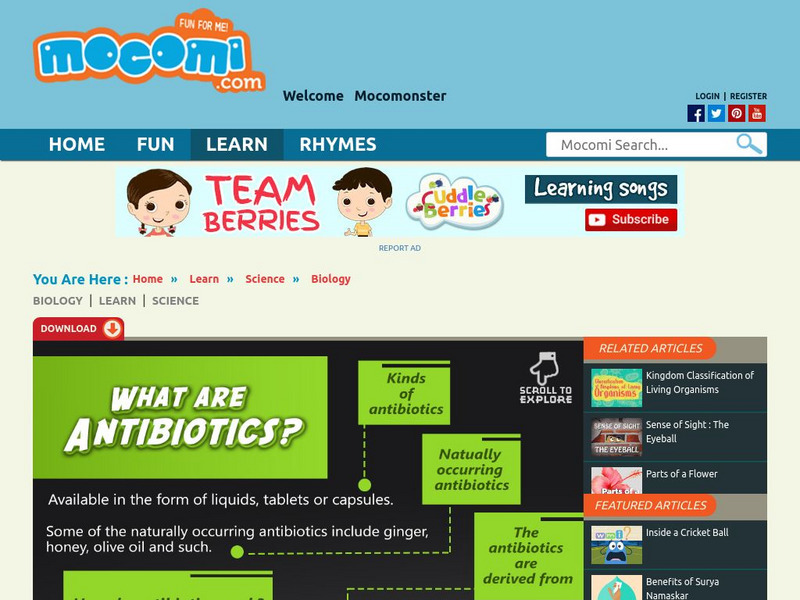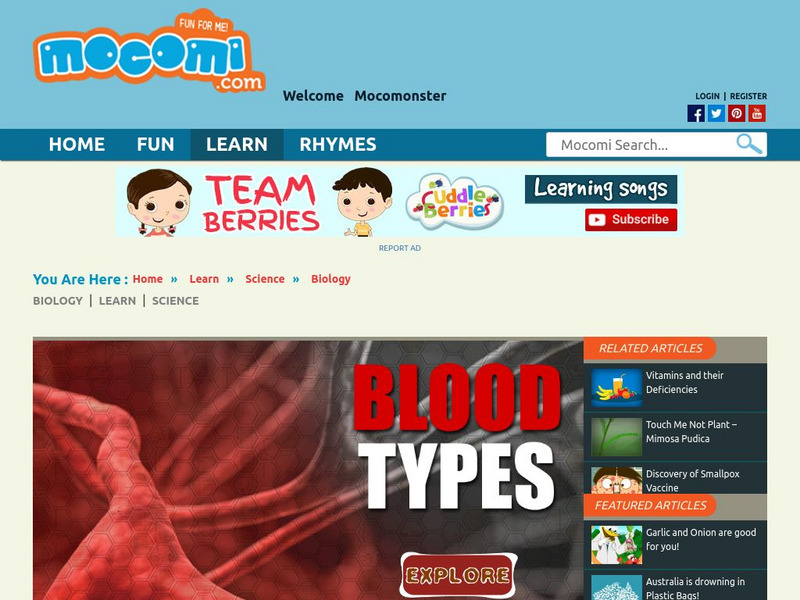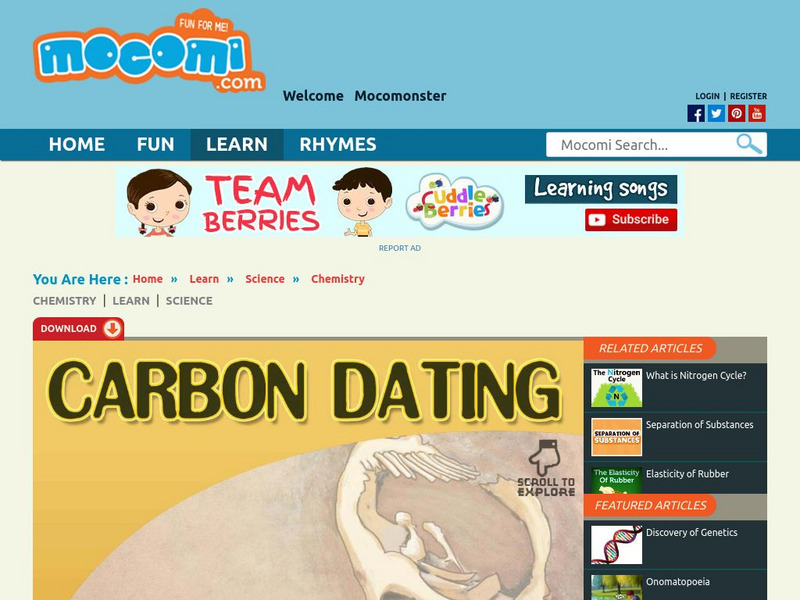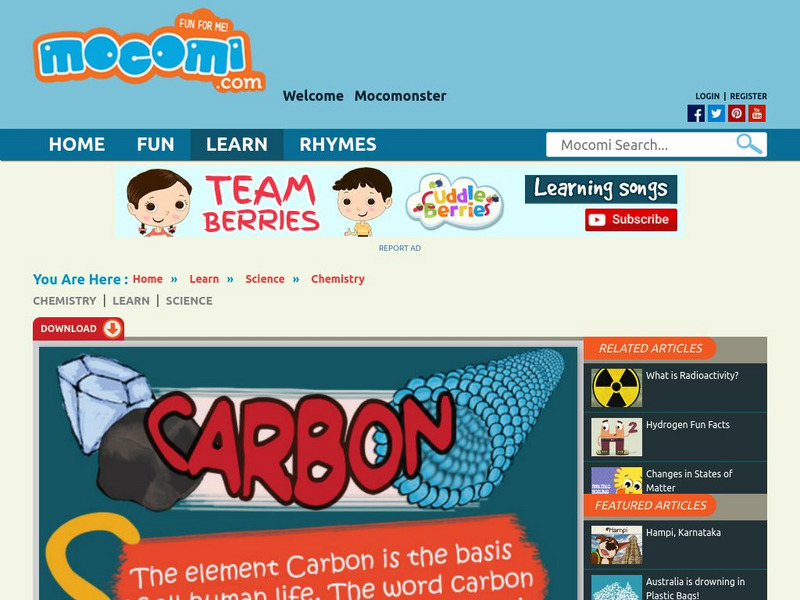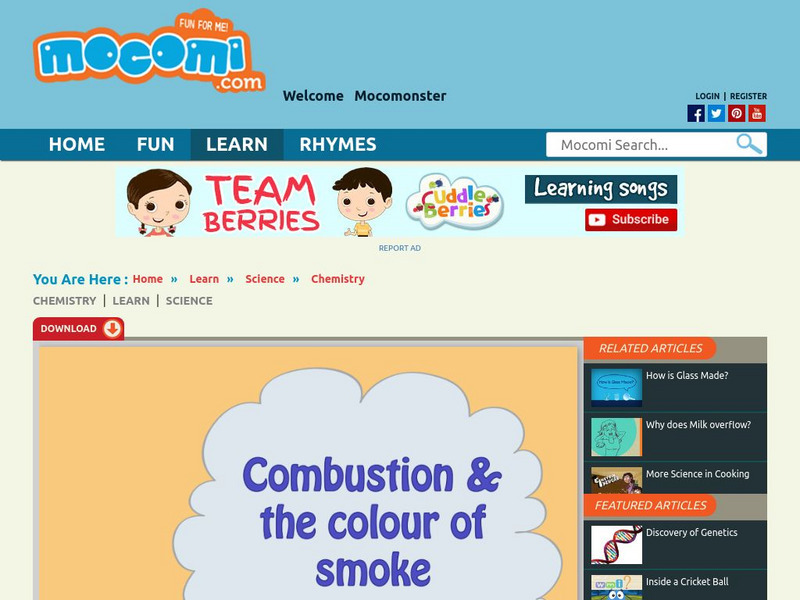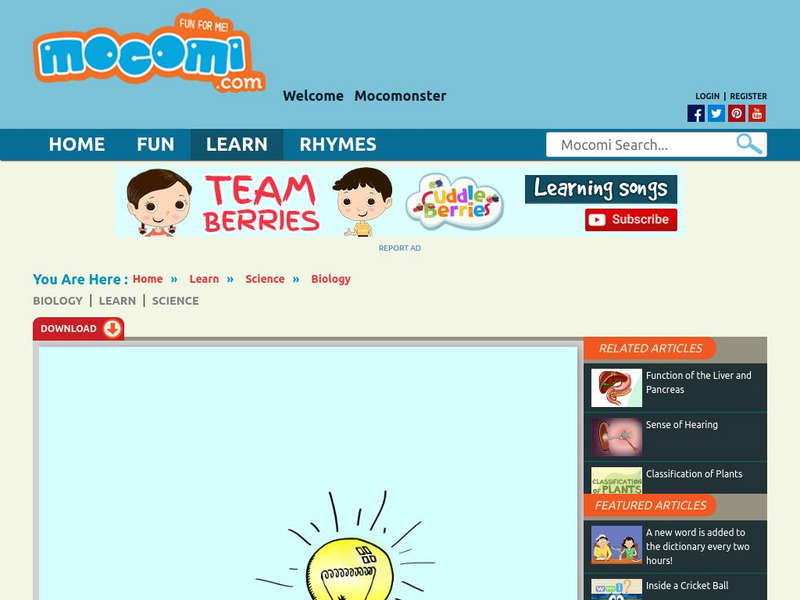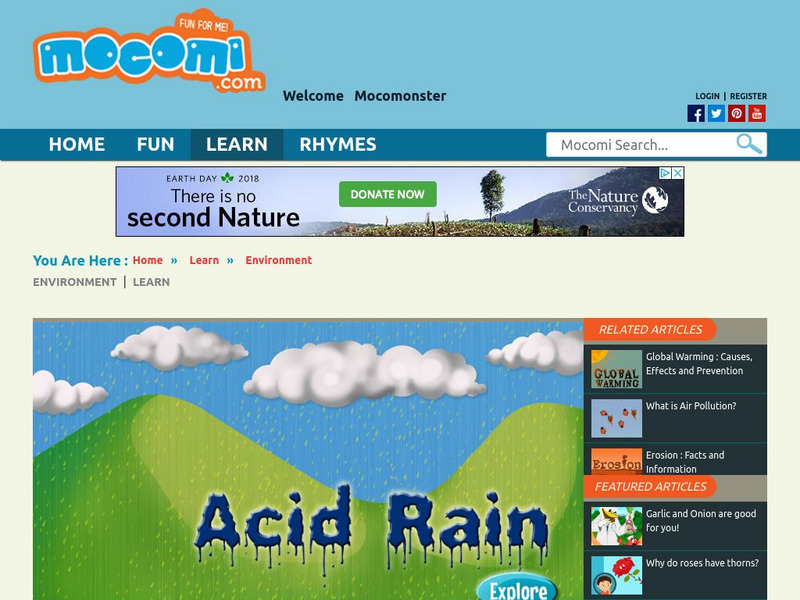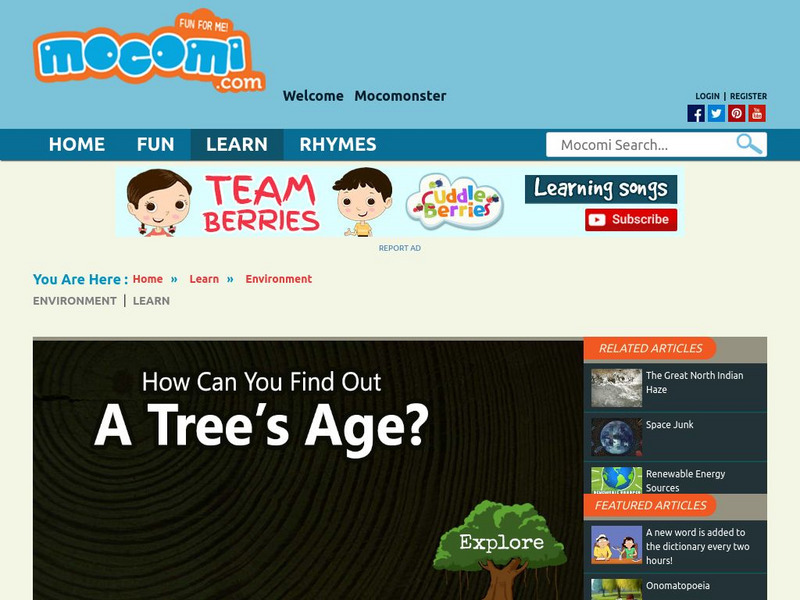Mocomi & Anibrain Digital Technologies
Mocomi: The Vikings
The interactive site takes students on a journey through the history of the Norsemen, more commonly known as the Vikings.
Mocomi & Anibrain Digital Technologies
Mocomi: Sir Dig a Lot: History Mysteries: Rome
Join Sir Dig-a-Lot and Rohan on their brief journey through the history of Rome.
Mocomi & Anibrain Digital Technologies
Mocomi: Sir Dig a Lot: History Mysteries: How America Got Its Name
Learn how America was named after explorer Amerigo Vespucci.
Mocomi & Anibrain Digital Technologies
Mocomi: The Theory of Evolution
This slideshow provides a brief overview of Charles Darwin and his theory of evolution, natural selection and survival of the fittest.
Mocomi & Anibrain Digital Technologies
Mocomi: What Are Antibiotics
This entry provides a brief but in depth explanation of antiobiotics and how they function within the human body.
Mocomi & Anibrain Digital Technologies
Mocomi: Blood Types
Understand how blood functions within the body and how it is broken down into various blood types.
Mocomi & Anibrain Digital Technologies
Mocomi: Molecules
When two or more atoms combine they give rise to a molecule. A molecule can be made up of many atoms of the same element. There are 112 elements known to man, so can you imagine the different permutations and combinations of molecules...
Mocomi & Anibrain Digital Technologies
Mocomi: Buoyancy
Ever wonder why/how things float? This concept is called buoyancy. Take this interactive journey to learn and understand how and why certain materials float and others sink to the ocean floor.
Mocomi & Anibrain Digital Technologies
Mocomi: Global Positioning System
Developed by the U.S. military, The Global Positioning System (GPS) is a space-based satellite navigation system that provides location and time information in all weather, anywhere on or near the Earth.
Mocomi & Anibrain Digital Technologies
Mocomi: Carbon Cycle
The carbon cycle is one of the most important cycles. It is the biogeochemical cycle by which carbon is exchanged among the biosphere, pedosphere, geosphere, hydrosphere, and atmosphere of the Earth. This cycle is important because it...
Mocomi & Anibrain Digital Technologies
Mocomi: Carbon Dating
How do we know how old a fossil is? We use carbon, as every living being has carbon. Carbon dating, also known as radiocarbon dating, is a method of estimating the age of carbon-bearing materials up to 60,000 years old. Scroll through to...
Mocomi & Anibrain Digital Technologies
Mocomi: What Is Carbon?
The element Carbon is the basis of all human life. Learn here about the discovery of Carbon and its function amongst all living things.
Mocomi & Anibrain Digital Technologies
Mocomi: Combustion and the Color of Smoke
The colour of smoke depends on how well something burns. Things that burn well give off white smoke. Things that do not burn well, such as rubber, give off black smoke. Also learn here about blue and black smoke.
Mocomi & Anibrain Digital Technologies
Mocomi: Electric Eels
Electric eels are truly electric. Yes! They are able to produce an electric charge which they use to hunt as well as scare off predators. They are the only species in the genus Electrophorus able to produce electricity. Even though its...
Mocomi & Anibrain Digital Technologies
Mocomi: What Is Global Warming?
This slideshow presents a number of issues, including global warming vs. global dimming and the causes and possible solutions for both issues.
Mocomi & Anibrain Digital Technologies
Mocomi: Acid Rain
The following interactive resource provides an explanation of what acid rain is and it highlights its causes and effects.
Mocomi & Anibrain Digital Technologies
Mocomi: How to Determine the Age of a Tree
Have you ever looked at a tree and wondered just how long it had been standing there? The branches and the trunks of trees have unique rings inside them, which can be seen if you cut a transverse section of a tree. These rings appear as...
Mocomi & Anibrain Digital Technologies
Mocomi: Gabriel Faure Biography
Short biographical sketch of French composer, Gabriel Faure.
Mocomi & Anibrain Digital Technologies
Mocomi: Maya Angelou
Read about the inspiring life story of Maya Angelou, an African American poet and author.
Mocomi & Anibrain Digital Technologies
Mocomi: Religions of the World
Explains what religion is, the different categories of world religions, and the major religions within each. Some facts are given about each religion, including its origin, where the name comes from, what its followers are called, and...
Mocomi & Anibrain Digital Technologies
Mocomi: Boston Tea Party
The Boston Tea Party took place on December 16, 1773 and was an act of rebellion by the American colonists against the British. Learn some key facts about this event.
Mocomi & Anibrain Digital Technologies
Mocomi: Sir Dig a Lot: What Is a Cathedral?
Explains what the difference is between a church and a cathedral.
Mocomi & Anibrain Digital Technologies
Mocomi: Sir Dig a Lot: Ancient Egyptian Hieroglyphs
Take a tour with Sir Dig-a-Lot and learn about the writing system developed by the ancient Egyptians.
Mocomi & Anibrain Digital Technologies
Mocomi: The History of Music
Presents a timeline of the history of music beginning with a woolly mammoth's bones in 18000 BC.






